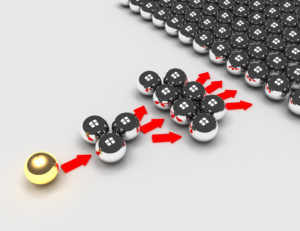
We recently lost one of the giants in advocacy, Valerie (Val) Guild of AIM at Melanoma, to cancer. I am rethinking many of our conversations, trying to solidify all the pearls of wisdom that she dropped on a seemingly daily basis. A few years ago in my conversations with Val, she mentioned that a retired baseball star named Mike Schmidt came forward as a melanoma survivor, and that the various melanoma advocacy organizations were sharing his story https://www.cancercare.org/press/releases/150-2017_09_19. Little did she know that for me, a 3rd baseman (albeit in softball), growing up in the Philadelphia suburbs during the late ’70s and early ’80s, Mike Schmidt was nothing short of a hero and a legend. Not everyone loves or follows baseball or is old enough to remember the 1980 Phillies. But there is a significant demographic who does, and the willingness of survivors like Mike Schmidt to bring attention to this cancer and the steps to prevent, manage, and survive it is an invaluable gift.
How do we tell stories and share perspective in 2020? Today, social media influencers are key to reaching different demographics, and some have embraced the opportunity to work with the experts to deliver reliable and helpful healthcare education. My 9 year old is a huge basketball fan, and he absolutely loves Steph Curry. One day, on YouTube, I found a fantastic interview that Curry conducted with Dr Anthony Fauci about COVID-19 https://www.youtube.com/watch?v=iuX826AGXWU. Steph acknowledged that he felt an obligation to use his sphere of influence to help people understand the disease and how to keep themselves and others safe. I was impressed with the relaxed interchange and the quality of the interview, driven by Steph’s effective questioning style as well as Dr Fauci’s plain-spoken, clear, and empathetic approach. In addition, during Dr Fauci’s interview, a basketball hoop can be seen in the background, both charming and apropos given that he was captain of the basketball team during his years at Regis High School in New York City. It also made him more approachable to this demographic.
We need more of this kind of stuff. With lots of inaccurate information on the internet and the over-politicization of public health topics, we need social media influencers to make a difference. Hopefully, they can be encouraged to serve as a bridge from the public to the vetted scientific information and experts who are doing real work/science. This way we can cut through the dangerous noise/unscientific musings clouding the current social media platforms to assure that more people get access to the vetted and reliable information needed to make decisions for themselves, their families, and their communities.






